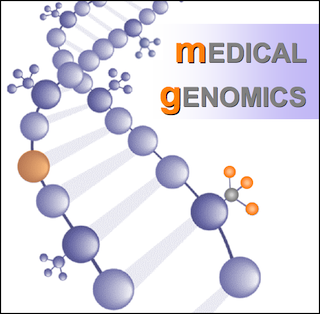eFORGE
This project involved the development of eFORGE and eFORGE2, computational tools for the analysis and interpretation of DNA methylation data from Epigenome-Wide Association Studies (EWAS).
450K Analysis Pipeline
This project involved the development ChAMP and ChAMP v2, computational tools for the analysis of DNA methylation data from the Illumina 450k and EPIC arrays.
NOCRC
NOCRC aims to develop and validate high performance blood based tests for colorectal cancer in a recently initiated screening program in Denmark quantifying existing and novel markers by sensitive and cost-effective methods. Our contribution was towards the development of a targeted bisulfite sequencing assay.
BLUEPRINT
This project represents the EU contribution to the International Human Epigenome Consortium (IHEC). It focuses on the analysis of haematopoietic epigenomes from healthy individuals and patients with common leukaemias and autoimmune disease. Among our main contributions to BLUEPRINT were an epigenome-wide association study (EWAS) in Type 1 Diabetes and an epigentic variability study in immune cells.
Oncotrack
This public/private translational consortium developed methods for oncology biomarkers to advance personalized therapy and medicine. Genomic, epigenomic and transcriptomic data were generated and analyzed to identifiy biomarkers predicting sensitivity to EGFR inhibitors in colorectal cancer. The main findings are described here.
Epigenesys
This EU Network of Excellence aims to link epigenetics with systems biology. The multidisciplinary consortium modelled and quantified the dynamics and mechanisms of epigenetic modulation at the cellular and organismal level. Our contribution was to explore and quantify the link between genotype and epigenotype.
Cancer Genomics Engineering Facility
The BRC-funded Cancer Genome Engineering (CAGE) Facility develops and provides TALE- and CRISPR-based genome engineering technologies for targeted genetic and epigenetic reprogramming to advance personal and medical genomics.
Epigenetics of Urological Cancers
Bladder cancer is the fifth most common cancer in the UK with over 11,000 new cases and almost 5,000 deaths per year. This project provided a better understanding of how aberrant DNA methylation can affect the aetiology of bladder cancer and how we can use this information to identify novel epigenetic biomarkers for the diagnosis and prognosis of the disease. The main outcome of this study was the development of UroMark.
Clinical Epigenetics
This programme aimed to establish integrated (epi)genomic analysis in a clinical setting, utilizing the NET BioBank at the Royal Free and UCL Hospitals. Neuroendocrine Tumors (NETs) are a heterogeneous group of neoplasms which arise from the hormone-producing cells of the bodyís nervous and endocrine systems and affect 1/50,000 in the UK population.
iPSC Methylome
Induced pluripotent stem cells (iPSC) are pluripotent cells derived from reprogramming of non-pluripotent cells such as skin or blood cells. iPSC have great potential for regenerative and therapeutic medicine. The aim of this project was to assess the efficiency of different reprogramming protocols using methylome analysis. The main findings are described here.
EpiTrain
EpiTrain is an Integrated Training Network (ITN) providing high-level training and career development for PhD students and postdocs at local host institutions, complemented by exchange programs and topical workshops. The scope of the project is to develop a broad scale understanding of epigenetic processes in common disease.
IDEAL
This consortium carried out integrated research on developmental determinants of aging and longevity with focus on epigenetic mechanisms. Our contribution to IDEAL is to determine the role of DNA methylation in haematopoietic stem cell aging.
Analysis Pipeline
We utilise and develop computational tools for the analysis of biological data, primarily obtained from studies of DNA methylation. The data predominantly comes from either second generation sequencing platforms or methylation arrays.
Epigenomics of Common Disease (pre-July 2015)
Genome-wide association studies (GWAS) have identified a multitude of genetic variants associated with complex traits including common diseases. However, their effect sizes are modest and the majority of causality remains unexplained for most common diseases. This project aimed to integrate GWAS with epigenome-wide association studies (EWAS) to gain a more complete picture of the aetiology of common diseases, including T1D, T2D and UC.
Methylome Analysis (pre-July 2015)
The involvement of DNA methylation in health and disease is well established but not yet fully understood. This project aimed to develop novel experimental and computational methods for the analysis of 5-methyl-cytosine (5-mC) and 5-hydoxymethyl-cytosine (5-hmC).
MeDUSA
MeDUSA is a computational pipeline bringing together numerous software packages to perform a full analysis of MeDIP-seq data, including sequence alignment, quality control (QC), and determination and annotation of DMRs.
Glioma Cancer Stem Cell Methylome
Gliomas are the most common form of primary brain tumours. Glioma cancer stem cells (CSC) are cells that possess characteristics associated with normal stem cells but are tumourigenic and can cause relapse and metastasis by giving rise to new tumours. Using methylome analysis, this project aimed to characterize epigenetic changes that occur during the differentiation of glioma CSC to committed progenitor cells. The main findings are described here.
ITFoM
IT Future of Medicine (ITFoM) is one of six flagship pilot projects taking advantage of recent technological advances to produce computational models of individual patients - virtual patients! These models will follow each patient through their healthcare system enabling physicians to virtually test and optimise personalised treatments.
Head and Neck Cancer Epigenome Project
Head and Neck Squamous Cell Cancer (HNSCC) is the sixth most common cancer worldwide and increasingly caused by infection with human papilloma virus (HPV). The aim of this project was to analyse HPV and non HPV-associated HNSCC epigenomes for differences in DNA methylation and microRNA expression for translation into biomarkers and therapeutic targets. The main findings are described here.
EWAS - Ulcerative Colitis
Ulcerative Colitis (UC) is a type of Inflammatory Bowel Disease (IBD) where inflammation develops in the large intestine (the colon and rectum). This project identified novel epigenetic variations associated with UC by conducting an EWAS on monozygotic twins discordant for the disease.
Nerve Sheath Tumour Methylome
Using comparative methylome analysis of benign and malignant peripheral nerve sheath tumors (MPNST), we identified loss of DNA methylation at satellite repeats as candidate biomarker for disease progression and challenged the dogma of global hypomethylation in cancer. The main finding are described here.
ZooArray: Epigenetic Insights into Vertebrate Genomes
Epigenetic modifications play crucial roles in organizing chromatin structure, specifically in regions which control gene expression and regulate other cellular processes. The aim of this project is to elucidate and characterize the epigenetic states of evolutionarily conserved sequences.
HEROIC
The EU-FP7 funded HEROIC Project was conducted between 2005-2010 and provides a resource (Ensembl Projects) for functional studies into chromatin remodeling, mouse embryonic stem (ES) cell differentiation and regulation of the (epi)genome in general.
Human Epigenome Project
The EU-FP5 and Wellcome Trust funded HEP was conducted between 1999-2006 and provides an epigenetic resource of chromosomal DNA methylation reference profiles of human tissues and cell lines
The MHC Haplotype Project
The MHC Haplotype Project provides genetic resources for association studies into inflammatory, autoimmune and infectious disease as well as forming a framework for population genetic studies.
The LRC Haplotype Project
The LRC Haplotype Project provides genetic resources for association studies into inflammatory, autoimmune and infectious disease as well as forming a framework for population genetic studies.
 Close
Close



